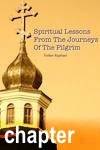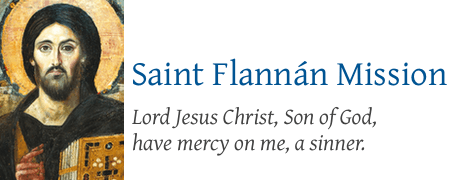 Have we prayed long and hard enough such that God opens up the heavens to reveal His indescribable love to us?
Have we prayed long and hard enough such that God opens up the heavens to reveal His indescribable love to us?
Dear beloved,
Let us return to our pilgrim in “The Way of a Pilgrim”. The pilgrim followed the instructions of the starets in his vision, and soon, he began to experience a tender soreness in his heart, and after that, a sense of warmth, joy and peace. The more he prayed the prayer of the heart, the less concerned he became of other worldly issues. The sensations he felt varied from joy, freedom, grateful tears, and love for the Lord. No matter what the joyous and positive sensations were, the pilgrim experienced the Kingdom of God within him (St Luke 17:21).
The pilgrim described 3 effects of this inner prayer. First, he experienced a constant remembrance of God and loving Him in the spirit. Second, he experienced feelings of warmth and joy in the heart with little interest in sinning. Lastly, he experienced a gift of understanding Holy Scripture better, even understanding how creatures communicate, dispassion for things in the world, and a firmer faith in the Lord. The pilgrim spent 5 months to pray, such that eventually, he was able to pray unceasingly in his heart, whether awake, or asleep. The pilgrim was able to multi-task, with an unceasing prayer in his heart, and yet tends to outward tasks such as listening to someone or reading.
Eventually, fall came and it was time for the pilgrim to leave. The pilgrim understood every condition in life to be a mercy and grace from God, and that everything from God is like a consolation, not to be an attachment to (Ecclesiastes 3:1-22). Therefore, he thanked the forester, kissed the ground that nourished him for months, and went on his way, contented. This is an important lesson for us in the world, that sometimes, when God grants us spiritual or material consolations, they are not meant for us to cling on to, or even lust after for more. They are meant as instruments of mercy during times of our weakness, and that we are to climb out of the pits and move on, strengthened and wiser (Daniel 2:21).
One day, a wolf attacked the pilgrim. A prayer rope (chotki) given by the pilgrim’s reposed starets saved him, when the prayer rope tangled the wolf’s neck. The wolf struggled and the pilgrim bravely made a sign of the Cross, and tore the prayer rope off the wolf, and the wolf escaped. The pilgrim was unharmed.
Although people did not think the pilgrim was saved by Divine mercy, a teacher believed him. The teacher told the pilgrim that Adam was first created innocent and was able to control animals (Genesis 1:26-28). Saints always held a prayer rope in their hands and their holiness was entwined with their prayer ropes, much like the innocence of Adam. Therefore, the mystery of such holy innocence is why the Orthodox Church holds the relics of saints in high regard.
The pilgrim realized that the teacher was a wise man, and wanted to learn more about prayer from him. The teacher explained that all men are born to pray and exalt God, even if many did not realize that, sometimes even throughout life (Romans 8:20).
The pilgrim walked and walked, eventually reaching a small community. The local priest invited the pilgrim to stay, and to be a watchman over the construction workers building a new church in the community. The pilgrim reluctantly agreed, as long as he could read and pray. The pilgrim retreated to a chapel to read and pray, and soon, people in the community realized the faith of the pilgrim, and the pilgrim began to give his thoughts to the community folks. He even taught a young peasant girl how to pray the Jesus prayer. The young girl was so devoted and disciplined that soon, she too found the inner joy of praying the Jesus prayer.
Eventually, the villagers who came to him regularly to ask for advice overwhelmed the pilgrim. The pilgrim had the heart of a hermit and was very uncomfortable in tending to the queries and prayer needs of people. So eventually he bade the priest goodbye, and decided to leave. This is an important lesson for us. Some of us are ordained to be monks or solitaries, who will lead an austere life of discipline and unceasing intercessory prayer for the benefit of mankind. Some others will have an ordained secular family life, where they will be deep in the world, and bring out growing families. In our journey in life, we should try our best to be open to listening, and discern if indeed God has given us specific talents, or if some of us are destined for other things. But whether eremitic or secular, one thing stands out that unites all of us – prayer. Even if we find prayer difficult at times for many of us in the world, remember this saying from Saint Macarius the Great (Coptic):
“One must force himself to prayer when he has not spiritual prayer; and thus God, beholding him thus striving and compelling himself by force, in spite of an unwilling heart, gives him the true prayer of the Spirit.”
Let us pray:
“Lord Jesus Christ, Son of God, have mercy on me, a sinner.”
